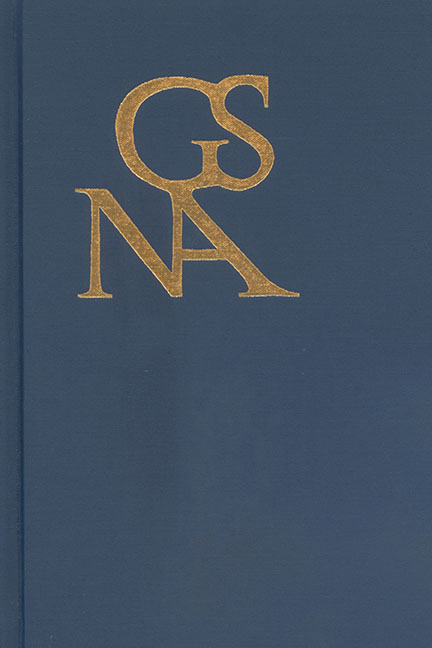From Literature To Metadata
Published online by Cambridge University Press: 28 October 2020
Summary
THIS IS NOT the first time that questions about the “great unread” have been raised with regard to eighteenth-century German studies. In the 1960s and early 1970s a variety of monographs sought to look beyond the canon to consider the entire range of imaginative fiction available to eighteenthcentury readers. Thanks to the efforts of such scholars as Marion Beaujean, Marianne Spiegel, Eva D. Becker, Albert Ward, and Rudolf Schenda, to name just a few, we know more about the broader literary landscape of the period than one might assume, not only with regard to its general topography but also the composition of the soil.
None of the authors of these studies had access to electronic corpora, but they still managed to evaluate an impressively wide array of works. In Der Trivialroman in der zweiten Hälfte des 18. Jahrhunderts (1964) for example, Marion Beaujean includes no less than 46 novels by 27 authors. To be sure, this number represents only a small fraction of the total novels published in Germany in the eighteenth century. Marianne Spiegel includes a list of 1,287 titles (including translations) published between 1700 and 1770 as an appendix to her monograph of 1967, Der Roman und sein Publikum im früheren 18. Jahrhundert 1700–1767. Ten years later, Michael Hadley published his Romanverzeichnis: Bibliographie der zwischen 1750–1800 erschienenen Erstausgaben, which includes publication data for more than 5,000 novels. There is, however, little reason to doubt the validity of Beaujean's interpretations, which aim to classify (sub)genres and trace their evolution, inasmuch as they are based on plausible sampling techniques and corroborated by para- and extratextual evidence.
What are the lessons to be learned from these earlier examples of a more comprehensive approach to literary history? The first and most obvious is simply that these efforts exist. The point has already been made in a variety of contexts, but it bears repeating: synoptic, as well as empirical and quantitative analysis, have a long history in literary studies, and whatever transformations are now occurring in the wake of increased access to digital corpora and the tools of data science, they constitute a recalibration rather than a rupture.
- Type
- Chapter
- Information
- Goethe Yearbook 27 , pp. 189 - 196Publisher: Boydell & BrewerPrint publication year: 2020



